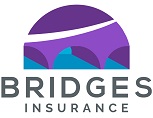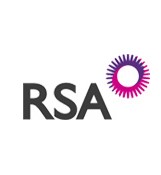Flooding; tips on keeping your business from going adrift
November 12, 2018
The unpredictable nature of our nation’s weather means that floods can happen suddenly and unexpectedly, potentially causing extreme damages to your property. In severe cases, the survival of your business, church or charity may also be threatened, so it’s important to ensure that you are readily prepared and protected in case of a flood, especially if your property resides in a risk-prone area.
Flooding: the costs
Aside from potentially being a dangerous and frightening experience, floods and the aftermath of them are often expensive; the removal of debris, replacing stock/equipment and fixing both internal and external structures are, although necessary, often costly. The security of your property’s electricity and gas might also be compromised in the event of a flood, incurring further expenses.
To ensure that your business, church or charity can have as smooth a recovery as possible after a flood, it is important that you have adequate protection and cover for. This is especially important if you are in a high-risk area. There is a useful flood risk map on gov.co.uk which will show the flood risk for your location: click here.
An insurer’s take on floods
Each insurer will have their own definition of what a ‘flood’ actually constitutes, but generally it involves the escape of water from large bodies such as rivers (eg which have burst their bank), seas (such as during high tides) and overflowing canals. Flooding surface water caused by heavy downpours generally come under flood cover as well.
Most insurers will include cover against floods in their buildings and contents policy. Your buildings insurance usually covers the costs of drying out the property, repairing/restoring structures and removing debris, whilst the contents policy means that your assets are covered and be claimed for, for example, in case of water damage.
If you have business interruption cover, your policy will also offer protection for income if you have had to cease trading (for reasons such as due to damaged stock), up until damage is fixed.
If you have any queries about what you are covered against regarding flood damage, please refer to your documents or contact us.
Reducing damage and preparation
Whilst preventing a flood isn’t always possible, there are measures you can take to avoid the worst of it from damaging your property and the contents within it. The following tips may help to minimise damage and reduce the time it takes for your business to recover after a flood:
- If your business resides in a flood-prone area, it might be worth checking if you are eligible to receive free flood alerts. Floodline Warnings Direct is a free 24-hour service that will send automated flood warnings by phone call, text, email or fax. See the end of this article for contact information.
- Painting your internal walls with water-resistant paint may help to reduce water damage, and applying sealant to any external cracks on your property could further add to your protection.
- Install or maintain one-way valves in drainage pipes to prevent the backflow of water.
- Replace doors and windows with water-resistant frames, for example, using waxed hardwood or plastic, where appropriate.
An Emergency Plan
If your business, church or charity is unfortunate enough to reside in a high-risk area, it might be worth implementing a Flood Emergency Response Plan. These are put in place so that your business can act accordingly in case of a flood. They should be regarded with much importance, as they could ensure the safety of not only your property, but also of those within it.
Flood Emergency Plans should generally include a staff contact list, and it should highlight those who will require extra assistance in case of a flood (for example, those with a disability). It should also describe the key locations of where to cut off services such as electricity, gas and water as well as information on when and how to undertake evacuation procedures.
Emergency Flood Plans are also important because they can:
- Reduce financial loses
- Reduce exposure to criminal liability
- Enhance your business’ credibility with employees, suppliers, customers, etc
If your property is likely to flood, not having a Flood Emergency Plan in place could mean that your business takes a longer time to recover from a flood, or may not recover at all. If you have a Flood Emergency Plan in place, it’s important to review and update it every year to reflect business growth. Put the plan in a safe place above ground level and make your staff members aware of where to find it.
The Environment Agency has a useful guide on Emergency Flood Plans, here
During the flood; how to stay safe.
If the property has begun to flood, or if a flood warning is in place, it is important to take necessary action. Although it can be difficult, it is important to remain calm and clear-headed in these situations.
- All occupants of the building should be appropriately evacuated; staff members should have access to a specific area for their evacuation. If there are any staff which are not currently on site, they too should be made aware so that they do not get caught up in it.
- Any important documentation and items should be placed above ground level
- Blocking entry points with sandbags is often a cheap alternative to flood barriers and airbrick-covers. Sandbags can be put into a toilet bowl to prevent the overflow of sewage.
- Heavy duty plastic bags can be put around the bases of tables and chairs.
- If you do not have a higher storage level, pallets can be used to lift items from ground level.
- Do not! Try to drive through flood water. It only takes a foot of water to make many vehicles float and two feet to carry them away. Only six inches of flowing floodwater can knock an adult from their feet.
If you need to make a claim
In the event of the flood and its aftermath, it’s important to contact your insurers directly (with the details provided) as soon as you are able to do so. If you are unsure about what you are eligible for or would like some advice, you can contact us by telephone (0184293614) or by email (enquiries@bridges.insure). You will be asked questions about the situation, the cause of flooding and the damages- if necessary, we will refer the case to your insurers for a review and possible pay out.
Floods are a worrying time for businesses, and we understand this. We will assist you throughout the entirety of your claim, offering support and giving advice when needed.
Please find below some useful links/contacts that you may find useful:
- Floodlines Warning Direct:
Telephone: 0845 988 1188
Website: www.environment-agency.gov.uk/flood









